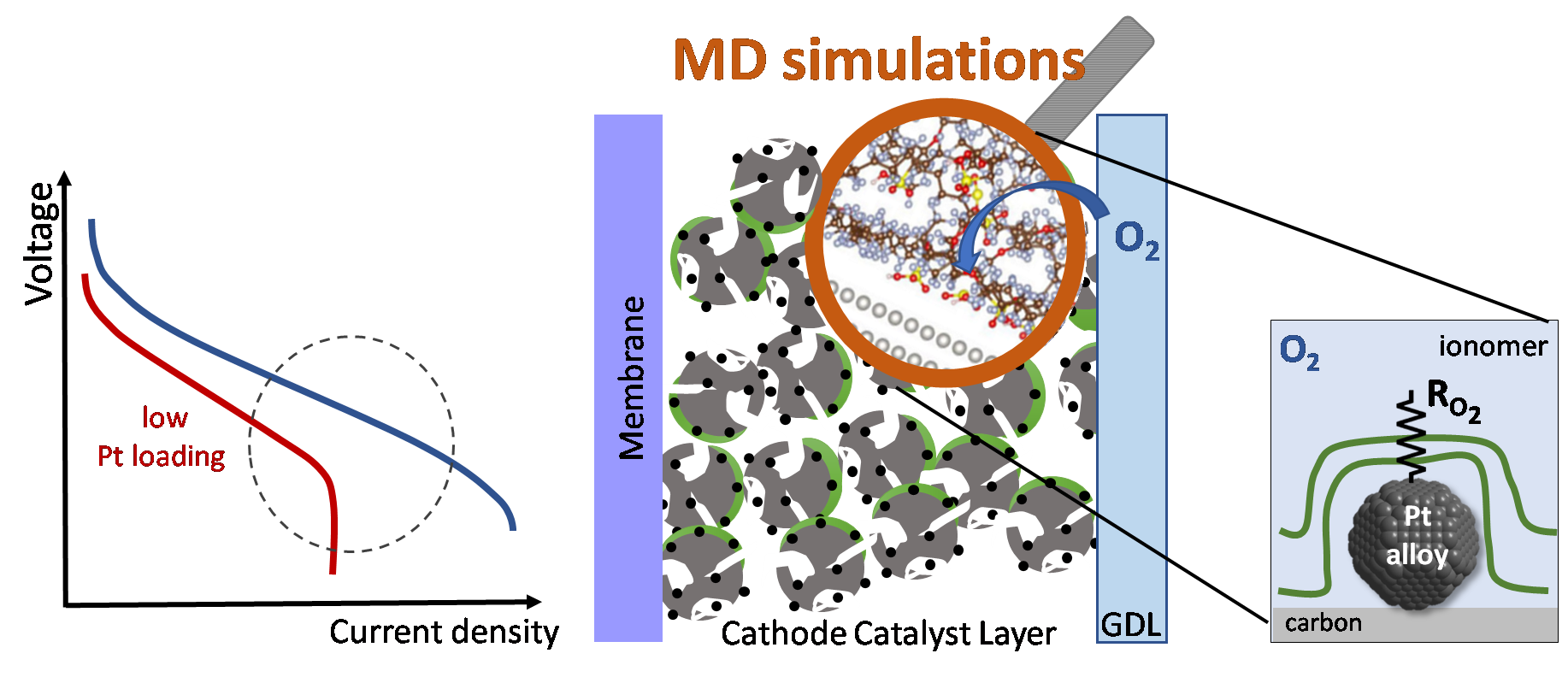
Polymer electrolyte membrane fuel cells (PEMFCs) are on the verge of commercialization on a larger scale, with one major obstacle standing in the way: low platinum loading with high performance and long-term durability. These challenges need to be overcome for future mobile applications such as aviation. Many approaches to achieving power-specific price and platinum (Pt) loading targets are based on replacing Pt with cheap transition metals or increasing the utilization of the platinum used. Over last two decades, Pt-based alloy cathode materials have been developed with superior catalytic performance for the very sluggish oxygen reduction reaction (ORR), enabling a reduction of the overall PEMFC stack costs. However, when the cathode Pt loading goes down to below 0.1 mg/cm2 to meet the cost targets, an as yet unexplained oxygen transport resistance occurs. The cause for the considerable voltage losses at high current density (> 1 A/cm2) is attributed to the insufficient supply of the O2 reactant into the porous cathode catalyst layer (CL), which dramatically affect the specific power density output of the PEMFC. Therefore, it is highly crucial to reduce the local O2 resistance near the catalyst surface to operate the PEMFC at high power density. It is suggested that these transport phenomena will play an even more important role in aviation application due to the differences in altitude (air dilution). In this proposal, the groups of Mehtap Oezaslan and Gabriele Raabe will systematically study the relevant key parameters to increase the O2 permeation and diffusivity through the ionomer film to the catalytically active Pt-Co and Pt-Ni surface. Therefore, it is very important to obtain fundamental insights into the catalyst – ionomer interface by linking the experiment with MD simulations. This knowledge may allow us to predict and ultimately to design and (nano)engineer material properties to overcome the high material PEMFC stack cost and dramatic performance losses for aviation application.

Our multi-dimensional approach obtained from the MD simulations at molecular level to macroscopic porous CL on the cell level will bring new fundamental understanding of these catalyst – ionomer interactions without any loss of the ORR rates to light. Thus, our specific objectives are the following: